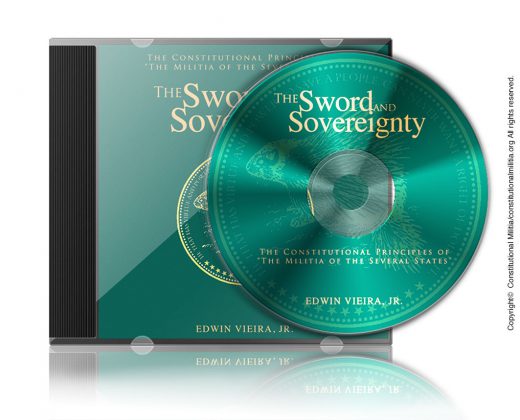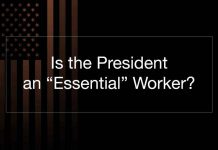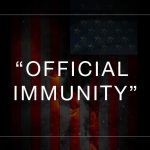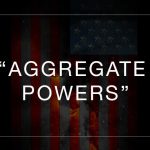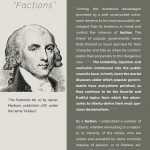Last Updated on October 3, 2021 by Constitutional Militia
I always approach each edition of the National Rifle Association’s magazine, American Rifleman, with some little trepidation, because of the disturbing content that all too often crops up in its editorials. The latest edition (May 2016) has once again proven that I am not merely a victim of intellectual paranoia.
In his regular column, “Standing Guard”, the NRA’s Executive Vice President, , advises his readers that “When it Comes to Gun Rights, 2016 Election Is About the Court, Too”. The thrust of the column is Mr. LaPierre’s reiteration of the necessity for the NRA’s supporters to “elect a president who believes and will fight for the Second Amendment”, as well as to “elect a [Charles] Schumer-proof United States Senate and maintain the current Second Amendment majority”. As I have explained in an earlier NewsWithViews commentary entitled “NRA, Second Amendment, and ‘We the People’”, reliance on elections alone (even if they are conducted honestly) is an inadequate means to “fight for the Second Amendment”. For instance, no candidate for “the Office of President” who fails to champion revitalization of the Militia is actually “fight[ing] for the second Amendment” to the full extent the Constitution requires. After all, how can a candidate for that office expect to fulfill his constitutional authority and responsibility as “Commander in Chief * * * of the Militia of the several States, when called into the actual Service of the United States”, when for all practical purposes “the Militia of the several States” are moribund throughout this country? Is not such a candidate’s “Job One” to correct that situation? The answer being obvious, I shall not rehash that matter here.
More disquieting in Mr. LaPierre’s column is his critique of certain statements made by the Justices who dissented from the Supreme Court’s decisions in District of Columbia v. Heller and McDonald v. City of Chicago—namely, Justices Stevens, Breyer, Sotomayor, and Ginsburg. To be sure, their pronouncements certainly warrant scathing criticism, if not raucous ridicule. Unfortunately, Mr. LaPierre’s rejoinders are not much less faulty— perhaps, are even more indefensible, coming as they do from an ostensible proponent of the Second Amendment. He is not so much “standing guard” over the Amendment, as standing down from that purpose.
A. Mr. Lapierre quotes Justice Stevens in Heller as contending that:
The Second Amendment was adopted to protect the right of the people of each of the several States to maintain a well regulated militia … there is no indication that the Framers of the Amendment intended to enshrine the common-law right of self-defense in the Constitution.
Now, no one who reads all twenty-seven words of the Second Amendment—not just the last fourteen, which the NRA emphasizes to the virtual exclusion of the first thirteen (a mistake, curiously enough, which Justice Stevens did not make)—can doubt that Justice Stevens was perfectly correct (albeit, I suspect, only accidentally so) to assert that “[t]he Second Amendment was adopted to protect the right of the people of each of the several States to maintain a well regulated militia”. Nonetheless, he missed the essential point: that, if the people have a right “to maintain a well regulated militia” in each State, then there must actually be, in each State, “[a] well regulated Militia”, organized according to constitutional principles drawn from pre– constitutional American history, in which Militia “the people” as a whole actually participate. The “right of the people” thus imposes a corresponding duty, not only on each of “the several States”, but also on the General Government (primarily, through Congress), to ensure that such Militia are fully enrolled, organized, armed, disciplined, and governed at all times. That “right of the people” is also a duty of “the people” to serve in such Militia, because constitutional Militia are establishments with near-universal compulsory membership. They are the only organizations the Constitution recognizes which are based upon a general “draft”. Full support for these assertions can be found in my book Constitutional “Homeland Security”, Volume Two, The Sword and Sovereignty (Front Royal, Virginia: CD-ROM Edition, 2012), and therefore need not be repeated here.
What Justice Stevens did not understand (or refused to acknowledge) is that, as Article 13 of Virginia’s Declaration of Rights (1776) made clear, “a well regulated militia” is “composed of the body of the people, trained to arms”. That means that every able-bodied adult American (other than conscientious objectors) not only must be suitably armed as an individual, but also must be trained to use his arms effectively in a collective effort in aid of the community’s self-defense. Of course, the guarantee that each and every eligible individual always possesses arms suitable for some kind of Militia service will also ensure that such arms are available at all times for every such individual’s personal self-defense. So, pace Justice Stevens, by “protect[ing] the right of the people * * * to maintain * * * well regulated militia”, “the Framers” did indeed “enshrine the common-law right of self-defense in the Constitution”, for individuals acting as individuals in their own personal defense as well as for individuals acting collectively in defense of the community.
We know this with apodictic certainty because the very first constitutional authority and responsibility of the Militia is “to execute the Laws of the Union”, as well as the laws of their own States. And self-defense— whether exercised on behalf of the community as a whole or of a single individual—is the execution of the very highest of all human laws. As Sir William Blackstone (no mean student of the common law) explained with respect to the “defence of one’s self”:
the law * * * makes it lawful in [an individual] to do himself that immediate justice, to which he is prompted by nature, and which no prudential motives are strong enough to restrain. It considers that the future process of law is by no means an adequate remedy for injuries accompanied with force; since it is impossible to say, to what wanton lengths of rapine or cruelty outrages of this sort might be carried, unless it were permitted a man immediately to oppose one violence with another. Self-defense, therefore, as it is justly called the primary law of nature, so it is not, neither can it be in fact, taken away by the law of society.
Footnotes:
Commentaries on the Laws of England (Philadelphia, Pennsylvania: Robert Bell, 1772), Volume 3, at 3-4.
Self-evidently, then, individual self-defense is, in fact and law, a microcosmic example of the macrocosmic right and duty of the Militia to execute “the primary law of nature” (and vice versa). This should be obvious, too, from the Second Amendment. For “the security of a free State” could hardly exist if individuals were unable to protect themselves, as individuals, from lone aggressors to the selfsame extent that they were able to protect themselves, as a community, from concerted attacks by large numbers of domestic or foreign aggressors (and vice versa). “A well regulated Militia” defends the community. The community, however, is composed of individuals. So, in defending the community, the members of the Militia are defending themselves as individuals, too. And even when an individual is simply defending himself against a single attacker in an isolated confrontation, he is also defending the community, because he is executing the very highest law of the community against the aggressor under circumstances in which no one else can come to his aid.
It is understandable that someone such as Justice Stevens could be hopelessly confused on this score. What, though, is to be said of Mr. LaPierre, who attacks Justice Stevens’ statement as “that arrogant defamation of liberty —utterly denigrating the individual right to keep and bear arms”. Is it conceivable that for Justice Stevens to link “the right of the people to keep and bear Arms” with the Militia is an “arrogant defamation of liberty”, when the Second Amendment itself identifies “[a] well regulated Militia” as “necessary to the security of a free State”? Do individuals in “a free State” not enjoy “liberty”? And, if they do (as is incontestably the case), is not “[a] well regulated Militia * * * necessary to the security” of their “liberty”? Or is the Constitution wrong on that point? One wonders whether Mr. LaPierre has ever pondered such questions.
B. Mr. LaPierre then quotes Justice Breyer’s dissent in McDonald:
“[T]he Framers did not write the Second Amendment in order to protect a private right of armed self-defense.” And “By its terms, the Second Amendment does not apply to the States; read properly, it does not even apply to individuals outside of the militia context.” Justice Breyer fumed. “After all, the Amendment’s militia-related purpose is primarily to protect the States from federal regulation, not to protect individuals.”
Of course, Mr. LaPierre is fully justified in treating these statements as rank gibberish—
First, as explained above, the Second Amendment certainly does “protect a private right of armed self-defense”. Can even Justice Breyer believe that a member of the Militia, required by law to possess a firearm in his own home at all times, does not enjoy a “private right” to employ that firearm for personal self-defense, in addition to his right and duty as a member of the Militia to execute the law against whoever attacks him?
Second, to what vanishingly small set of citizens does the Second Amendment not apply, because the constituent individuals are “outside of the Militia context”? “A well regulated Militia” includes all able-bodied adults from, typically, 16 years of age on up. Only individuals convicted of the most serious crimes, and those who (although otherwise able-bodied) suffer from some disabling mental disease or defect, are excluded. (Conscientious objectors are not required to possess firearms, but must perform some other Militia service.)
Third, the right—and duty—of “the people to keep and bear Arms” so as to be able to serve in “well regulated Militia” must apply first and foremost to and in their own States, because the Militia are “the Militia of the several States”, not “the Militia of the United States”. Do not the States themselves enjoy a right and labor under a duty to provide in their own territories what the Constitution declares to be “necessary to the security of a free State” everywhere without exception throughout the Union? Is their “security” as “free State[s]” to be left to the mercies of errant public officials in the General Government? What if insouciant, incompetent, or disloyal officials of that government fail, neglect, or refuse to provide the requisite measures of “security”? Must “free State[s]” then collapse throughout the United States, with no recourse in self-help?
To be sure, Congress labors under the constitutional duty “[t]o provide for organizing, arming, and disciplining, the Militia” for the purposes of “execut[ing] the Laws of the Union, suppress[ing] Insurrections and repel[ling] Invasions”. But what has it done to date (actually, since 1903)? It has consigned almost all Americans to the constitutionally oxymoronic “unorganized militia”, leaving them unprepared to perform any Militia service in defense of either their communities or themselves as individuals. Were the right and duty of “the people” to serve in “well regulated Militia” fully enforced by the States, though, Congress’s default would not matter to a critical degree, because Militia properly “well regulated” by their own States would be prepared to fulfill all of the responsibilities “necessary to the security of a free State”, including the three the Constitution specifies.
Fourth, the General Government’s only regulatory authority in the premises is to organize, arm, discipline, and train the Militia, and to govern such part of them as may be employed in the service of the United States, for one or more of the three explicit constitutional purposes quoted above, and for nothing else. The Constitution authorizes no other regulation—and most emphatically no regulation which directly violates “the supreme Law of the Land” by purporting to “unorganize” or “disarm” the Militia. Furthermore, an unconstitutional regulation of the Militia which harms the States necessarily harms “the body of the people” who make up the Militia, and therefore harms the vast majority of the able-bodied adult individuals who make up society. So, pace Justice Breyer, if the Second Amendment provides any protection at all, it assuredly “protect[s] individuals”.
But if Justice Breyer is all wet, does Mr. Lapierre stand on drier ground? Does Mr. LaPierre imagine that “the people” have no right to require their own States to maintain the very—indeed, the only—institutions which the Constitution declares to be “necessary to the security of a free State”? Are the States to be suffered to behave as other than “free State[s]” by simply dispensing with their Militia? One would hope not. Yet is this not the terminus to which acceptance of “the individual right to keep and bear arms”, so precious to Mr. LaPierre, now leads this country?
C. Mr. LaPierre then scoffs at what he calls Justice Stevens’ “off-the- wall dissent” in McDonald:
Stevens wrote, “[T]he experience of other advanced democracies, including those that share our British heritage, undercuts the notion that an expansive right to keep and bear arms is intrinsic to ordered liberty. …
“[I]t is silly—indeed, arrogant—to think we have nothing to learn from the billions of people beyond our borders.”
Mr. LaPierre rightly derides this claptrap.
The laws of foreign nations are both irrelevant and impertinent with respect to how America’s Constitution should be construed and applied. As to foreign nations in general, I have written a book to that effect. How To Dethrone the Imperial Judiciary (San Antonio, Texas: Vision Forum Ministries, 2004). As to Great Britain in particular, immediately pre-constitutional American history provides a veritable library, culminating in the record of General Gage’s attempt to impose “gun control” on the Colonists in Lexington and Concord in 1775—the event memorialized, for example, as part of “A Declaration by the Representatives of the United Colonies of North America, now met in General Congress at Philadelphia, setting forth the causes and necessity of their taking up arms” (Thursday, 6 July 1775), Journals of the Continental Congress, Volume 2, at 150-151. (In this regard, Mr. LaPierre would do well to recall that Americans resisted British tyranny on 19 April 1775, not by anarchic exercises of some imaginary “individual right to keep and bear arms”, but by turning out in a collective fashion as Local units of the Militia of Massachusetts.)
Pace Justice Stevens, Americans’ first task must be to learn, not from foreign sources but from their own Constitution, what “liberty” means—and especially what institutions and practices are required to preserve it. The most important precept (because the Constitution singles it out) is that “[a] well regulated Militia”—not an imaginary “individual right to keep and bear arms”—is “necessary to the security of a free State”. Having learned that much, Americans can compare the state of “liberty” in their own country (in which a large proportion of the citizenry remains armed), with the general nonexistence of “liberty” in foreign nations (in which disarmament of the populace is the usual state of affairs). What America’s Founding Fathers understood as “liberty” under “the Laws of Nature and of Nature’s God” may be slipping into an increasingly perilous condition in this country; but it is largely defunct almost everywhere else. What (in Justice Stevens’ words) “we have * * * to learn about liberty from the billions of people beyond our borders” is that the deterioration of “liberty” here and its elimination there are not mere accidents of history. They derive from disregard of the first thirteen words of the Second Amendment in this country, and from the absence of the entire text of that Amendment in the organic laws of other countries.
D. Finally, Mr. LaPierre rightly chides Justice Ginsburg for once saying that she “would not look to the U.S. Constitution if [she] were drafting a constitution * * * . [She] might look to the Constitution of South Africa[.]” “You might ask,” writes Mr. LaPierre, “why would a U.S. Supreme Court justice prefer another constitution to that which was forged in Philadelphia more than 200 years ago?” The explanation as to Justice Ginsburg, no doubt, is that she subscribes to a legal and political ideology incompatible with— indeed, diametrically opposed to—the principles of America’s Constitution, and therefore “prefer[s] another constitution” of her own imagining. What, though, is the explanation as to Mr. LaPierre?
Exactly what constitution, informed by what legal and political ideology, does he prefer? Apparently, it is a constitution with no firm grounding in pre-constitutional American legal history, a constitution to be construed on the basis of an ideology which licenses its exponents to dissect the Second Amendment, to disregard if not discard the Amendment’s first thirteen words, to disrespect the judgment of the Founders that “[a] well regulated Militia” is “necessary to the security of a free State”, and to discourage the members of the NRA, as well as those sympathetic to it throughout this country, from associating themselves with the Militia in thought, word, and deed, except when they deny that the Militia have any significant relationship to “the right of the people to keep and bear Arms”.
Misinterpretations of the Constitution with such an undercurrent of animosity towards the Militia could be expected to be broadcast by a certain “poverty” law center, notorious for its rabid opposition to the Second Amendment. Why they keep emanating from the NRA, however, passes understanding. Perhaps it really is true that whom the gods would destroy they first make mad. Unfortunately, if allowed to fester much longer this particular madness will destroy, not only the NRA, but the rest of us as well.
©2016 Edwin Vieira, Jr. – All Rights Reserved.






























